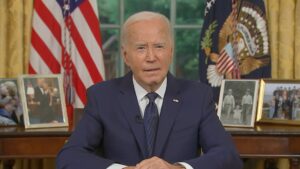Huge security challenges await Nigeria’s new president
Kano, Nigeria (AFP):
Incoming Nigerian president Bola Tinubu faces significant security challenges as violence has resurfaced following a lull for elections.
Attacks or kidnappings by criminals known as “bandits” in the northwest and centre are common. While in the northeast there is an insurgency by militants, in the southeast there are separatists.
It was feared that the frequency and intensity of the violence would threaten elections held in February and March. The relative calm during the polls surprised many observers.
Tinubu, the 71-year-old winner of the presidential election, is set to be sworn-in on May 29.
He will take over from 80-year-old Muhammadu Buhari of the same party, who has been accused of not delivering on his promise to tackle entrenched insecurity during his two terms.
Despite the opposition claiming electoral fraud during the polls, officials have said the voting was free and fair, declaring Tinubu as the winner.
One of the new government’s most urgent tasks will be to tackle insecurity, which has resurfaced in full force since April.
“More than 100 people dead and 3,000 displaced after clashes”, “25 kidnapped from a church”, “US convoy attacked by gunmen” — those are just some of the recent headlines in the country.
‘Little or no resistance’
For Emeka Okoro, security analyst with the Lagos-based consultancy SBM Intelligence, “the incoming president will likely face significant security challenges upon assuming office.”
The most urgent is in the centre and northwest of the country, where old tensions between herders and farmers have morphed into a deadly conflict involving heavily armed criminal gangs.
Impunity as well as insufficient security as has allowed the violence to fester, Okoro said, despite some ongoing military operations against the groups.
Bandits “invade a community, kill people and destroy their properties, with little or no resistance from the security officials,” said Muhammadu Sa’ad Abubakar III, the Sultan of Sokoto, one of the states affected by the violence.
During the presidential campaign, Tinubu promised that he would “accelerate the reforms commenced” under Buhari “in building a more robust, re-energised armed forces.”
He said he would “recruit, train and better equip additional military, police, paramilitary and intelligence personnel.”
But for Idayat Hassan, of the Abuja-based Centre for Democracy and Development, the incoming administration should also move towards “a non-military” approach and address some of the root causes of the violence.
“This includes (tackling) unemployment, poverty, addressing real and perceived marginalisation, justice sector reform… stemming the flow of arms and securing the borders,” she said.










